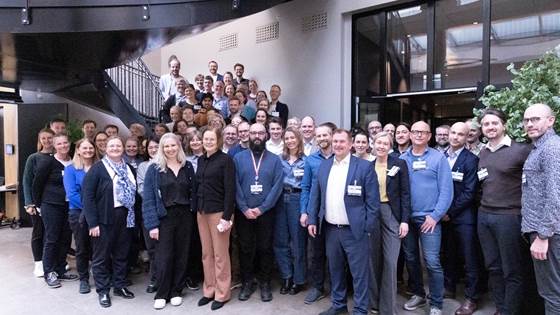New depressurization tool prevents pipeline ruptures during CO₂ transport
Did you know that CO₂ is a gas that behaves in a special way? Transporting this greenhouse gas poses a challenge for pipelines.
Did you know that CO₂ is a gas that behaves in a special way? Transporting this greenhouse gas poses a challenge for pipelines.

The Trondheim-based company Cartesian won the newly established Nordic Innovation Award at the finals in Copenhagen today. The award, presented by the patent offices of Sweden, Denmark, Finland, Iceland, and Norway, highlights Nordic companies...

Imagine that the wires to your house not only have to withstand high electrical current flow, weather and wind, but also salt water, ocean currents, temperature changes and large movements. This is the big challenge in connecting large, electrical...

A unique collaboration between African and European research scientists demonstrates how large African cities can electrify private transport using solar power and smart planning.

Such storage will be crucial if we are to halt climate change, which is already costing us enormous sums of money and causing suffering for humans and animals.

We need to think more about the interaction between architecture, pedagogy and different forms of learning when we plan new schools, researchers say.

Using well-known offshore technology from the oil industry, along with a completely new idea, the founders of Farmocean-subsea want to create equipment for aquaculture at sea. Way out at sea.

New FME research centre InterPlay (Integrated Hub for Energy System Analyses) officially kicked off yesterday, gathering consortium members and partners in Trondheim to mark the official launch.

When capturing CO2 from industrial sources, a capture agent is used, most often amine solvents. A new report provides guidelines on how industry can choose the right solvent technology.

Norwegian hydropower provides stability in the power market, but a more even power consumption in Norwegian building stock could have an impact on the electricity production of hydropower, a new SINTEF study shows.

The world needs more of the valuable nutrients found in fish viscera, liver and roe. Yet, much of this raw material is being thrown back into the sea. There are good reasons to stop this wasteful practice.

Tests show that it is possible to cut up to 33 percent of energy consumption using smart heating controllers. The system is based on multiple factors, including future electricity prices and weather data.

Insidious bacteria could cause trouble for the sprinkler wave that is now rolling in across Norway if the tiny organisms are not taken seriously.

If electric vehicles were lighter, they would also be more energy efficient. Of course researchers are eager to make that happen. With aluminium.

Far below the earth’s surface is an energy source with huge and perpetual potential: geothermal heat. But the forces in its scorching and inhospitable depths must be tamed. Now scientists know what that will take.